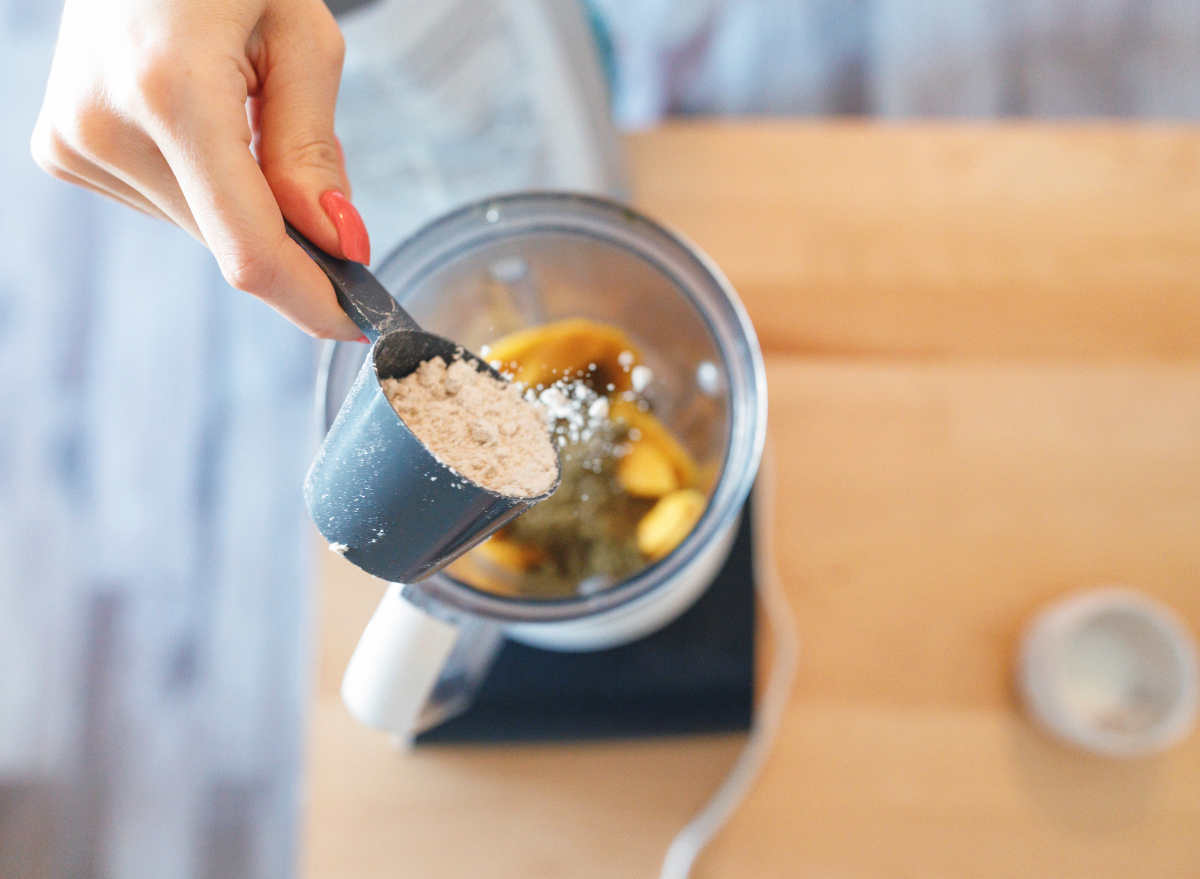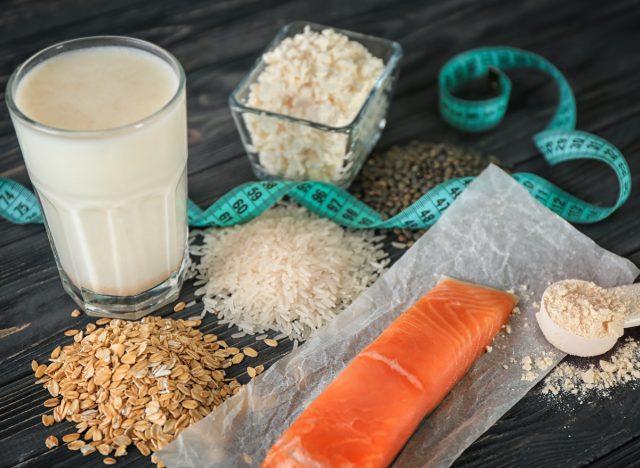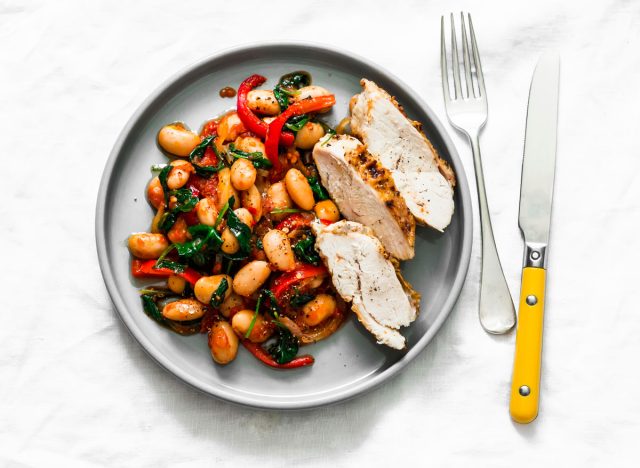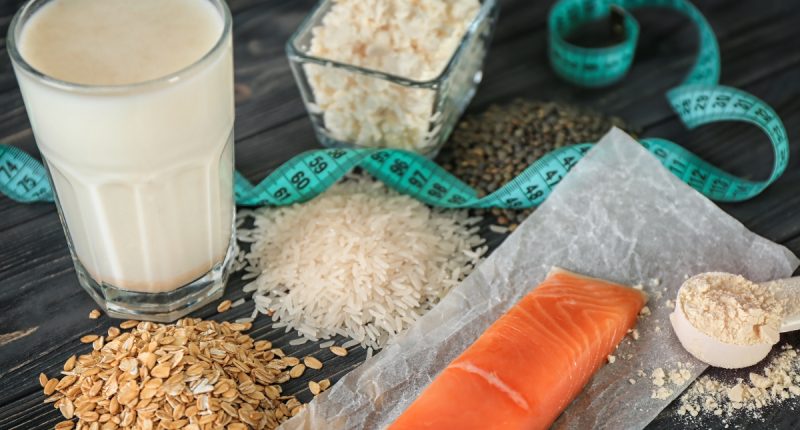
How Much Protein You Need To Eat Every Day To Lose Weight – You’ve likely heard that protein is the go-to nutrient for weight loss. But how much protein should you eat to shed those extra pounds? In the confusing world of macros, fad diets, and conflicting nutrition advice, the role of protein in weight loss often gets overcomplicated. Fortunately, we’re here to set the record straight.
Protein is one of the three primary macronutrients (along with carbs and fats) essential for a healthy diet. Protein makes up 20 percent of your body and is found within every one of your cells. This powerhouse nutrient can also fuel muscle growth, keep you full longer, and boost your metabolism.
But let’s be honest: guzzling protein shakes like they’re water isn’t going to do you any favors. Too much of anything isn’t good, and yes, that includes protein. That’s why we spoke with Trista Best, RD, a registered dietitian with Balance One Supplements, who breaks down how much protein you should eat to lose weight and which protein sources to focus on.
Whether you’re into chicken, beans, or protein-packed veggies, read on to find out how much protein you should realistically aim for to reach your weight loss goals.
The protein-weight loss connection.

Protein is the building block of muscles. And according to research, a more muscular body burns calories more efficiently—even at rest. Also, consuming protein can increase satiety, curbing those late-night snack cravings that can sabotage your weight loss goals.
“Protein is highly satiating, meaning it helps you feel full and satisfied after a meal,” says Best. “This can reduce overall calorie intake by curbing overeating and snacking, leading to a calorie deficit necessary for weight loss. Also, maintaining muscle mass through adequate protein intake can help keep your metabolic rate higher, even during weight loss. This means you burn more calories at rest.”
How much protein is enough?
The million-dollar question: exactly how much protein do you need daily to tip the scale in the right direction? According to the National Institutes of Health (NIH), the answer, as frustrating as it might be, varies from person to person. Factors like age, activity level, and overall health can influence the ideal amount.
However, there are some general recommendations you can follow. “It’s advised to consume at least 0.36 grams of protein per pound of body weight. For example, if you weigh 150 pounds, the minimum protein intake would be around 54 grams of protein per day,” explains Best.
“A moderate protein intake for weight loss typically falls within the range of 0.6 to 0.8 grams of protein per pound of body weight. This is suitable for most individuals and helps with muscle preservation and appetite control. Some individuals, especially those highly active or with a significant amount of weight to lose, may benefit from a higher protein intake. This could range from 0.8 to 1.2 grams of protein per pound of body weight,” she adds.
Quality over quantity.

The quality of the protein you consume is just as vital as the quantity. Whole food sources like lean meats, fish, dairy, and plant-based options like lentils and chickpeas are your best bet. These options offer a variety of essential amino acids that research suggests are more readily absorbed by the body.
Best tells us, “Protein sources vary in terms of their nutrient profiles, satiety, and overall impact on your diet. For instance, lean protein sources like skinless poultry, fish, lean cuts of meat, tofu, legumes, and low-fat dairy tend to be lower in calories and saturated fats while providing essential nutrients. These sources can help you maintain a balanced and nutritious diet, supporting your overall health and weight loss goals.”
Don’t overconsume protein.
While protein plays a critical role in weight loss, eating too much can backfire. Your body can only use a certain amount of protein for muscle synthesis, and anything beyond that gets stored as fat. Studies show that excessive protein intake can strain your kidneys over time and lead to nutrient imbalances.
“Consuming large amounts of protein often means neglecting other essential nutrients from fruits, vegetables, and whole grains, potentially leading to nutrient imbalances in the diet. Therefore, it’s crucial to strike a balance and aim for a moderate and well-rounded intake of protein that aligns with your individual dietary needs and overall health goals,” says Best.
Don’t miss: 14 Best Foods For Your Skin, According to Dietitians







